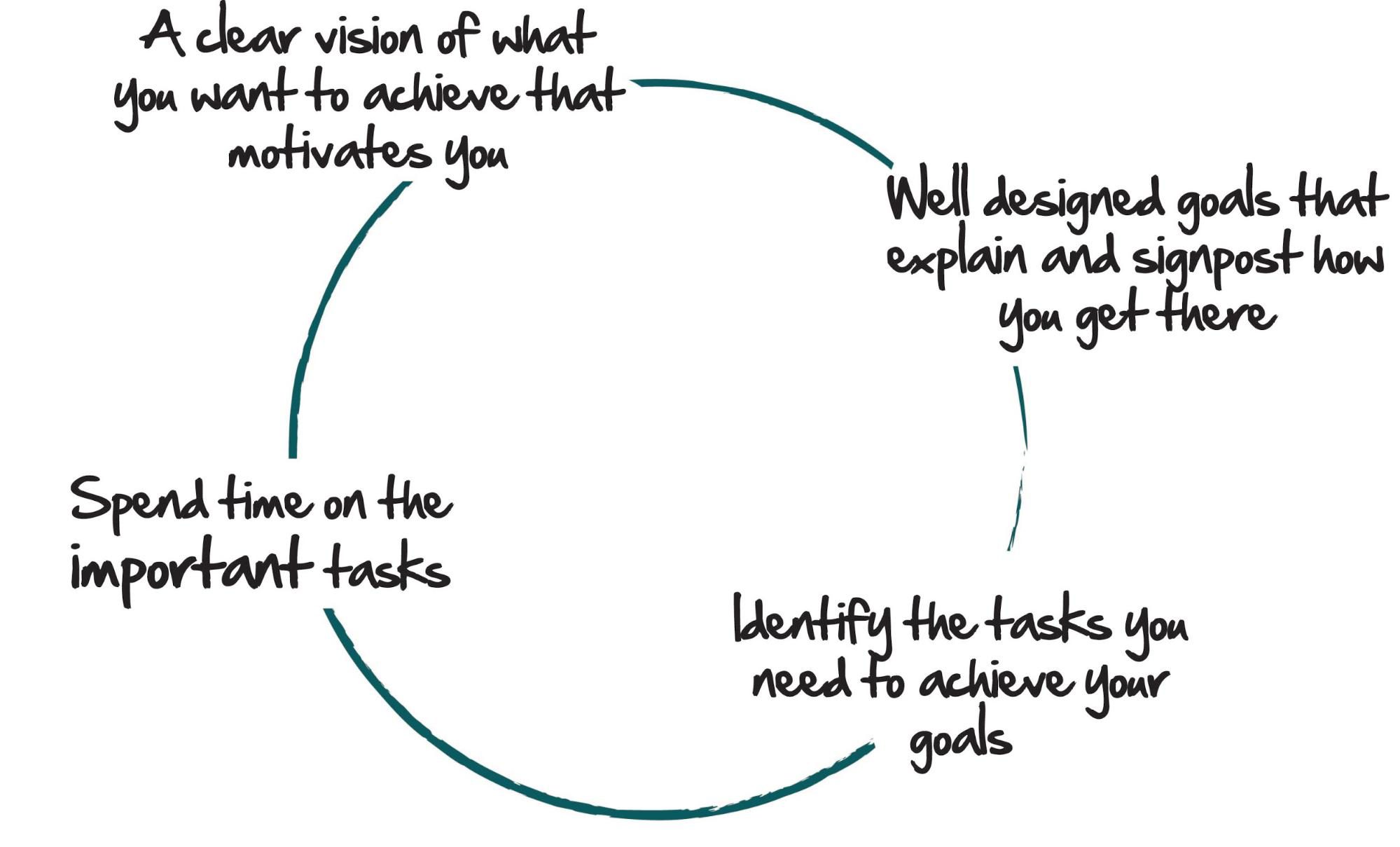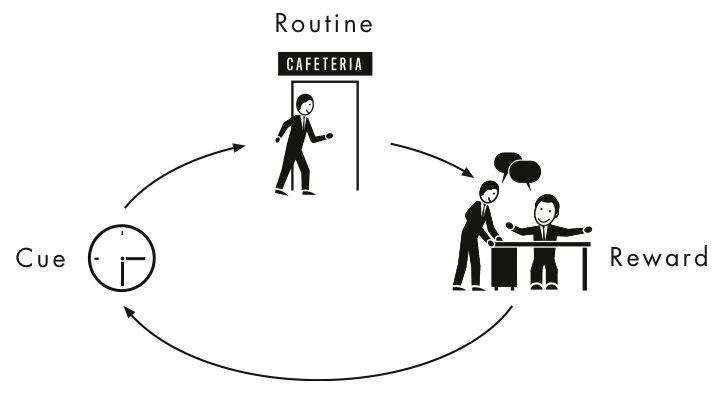
If you’ve tried (and failed) at blogging, don’t feel bad.
You’re not alone. Creating content, especially good content, is hard work. It takes a long time. Most of the time, you don’t see instant rewards.
So, how do some people write three, five, or even ten articles every week?
You might think that they work 80-hour weeks, are blessed with some genius gene, or have an army of assistants at their beck and call.
The reality is prolific writers are normal people. The difference lies in their habits—habits that have allowed them to repeat a pattern of success every day.
Do you want to write five or more articles a week? Studies show that there are massive marketing benefits to doing so.
Take a look at this data from Hubspot. Their research revealed that businesses who blogged 11 or more times per month had the largest amount of inbound traffic.

But it’s not just traffic they gained. Traffic can be a vanity metric. These companies got more leads too!

Content is like the gift that keeps on giving.
If you push yourself to produce content now, you’ll be reaping the rewards for months and years to come.
Take a look at another piece of Hubspot research. They discovered that they were generating more contacts from old posts than they were from new ones.

The path to content marketing success is persistent, repeated content generation.
And in order to achieve persistent, repeated content generation, you’ve got to learn to write more.
That brings me to the point of this article. I want to show you some of the methods I’ve used to produce thousands of blog articles over the years.
Consider this your personal cheat sheet. By using one, two, or all these tips, you’ll be able to produce vastly more content than you are right now.
And here’s the best part: you won’t burn out.
Burnout is a huge cause of failure. Remember, content marketing is a long term commitment. Fizzling out after a few weeks of red-hot intensity isn’t going to give you the results you need.
So, let’s dive into the tactics. Here is how you can write five or more insanely good articles every week and keep at it for the long term.
Create a goal, and make time for it
Let’s start with the obvious. You’ve got to set a goal for yourself.
Maybe you won’t aim for five posts a week. Maybe you’ll shoot for three at first. That’s fine.
The important thing is to set a goal.
- According to goal experts, we should first establish a vision of what we want to achieve. In this case, the vision is five articles a week.
- Second, we clarify that goal in our minds.
- Third, we determine what we need to do in order to accomplish that goal.
- Finally, we need to spend time on that goal.

Notice that critical point in the circle of goal success is “spend time on the important tasks.”
For you, the important task is writing. In order to achieve your goal, you must take time.
The same is true for any goal. You must “get to work” and “stick to it,” which takes time.
Set aside time to write every day
It might not sound all that exciting, but it works. Persistence. The more often you do something, the better you’ll become at it.
According to Angela Duckworth, a psychologist who specializes in the subject of personal grit and self control,
“You don’t need to have talent to succeed. You need to have persistence.“
By persisting every day in your commitment to write, you’ll eventually reach the point where you are easily whipping out five articles a week or more.
I want to challenge you to write every day. Writing every day is mental training. The more you do it, the stronger and more powerful you will become.
Brian Clark of Copyblogger has a simple and memorable “10 Steps to Becoming a Better Writer.” Here’s his advice:

Pretty simple, right?
That’s all there is to it.
Write every day, and you’ll soon be achieving your goal of five articles a week.
Create a deadline for yourself
Many of us work better if we have a date and time by which we have to finish.
Let’s say your boss came to you and said, “Can you create the report, please?”
You say, “Sure, when do you need it by?”
Your boss replies, “Oh, whenever.”
When will you get the report done?
Maybe tomorrow. Maybe in a week. Maybe in a month.
You don’t have a deadline, so your boss’s request might get shoved aside in favor of more urgent tasks.
But what if your boss said, “I need the report by Tuesday at 3 p.m.”? Then what happens?
Hopefully, you’ll get it to your boss by Tuesday at 3 p.m.
The same deadline-setting power applies to writing articles.
Break your five-article goal into manageable chunks—perhaps 1 hour of writing every day. Put that writing hour into your schedule. By 3 p.m. every day, you should have written, say, 500 words.
Easy enough, right?
Deadlines aren’t tyrannical methods of cruel and unusual punishment. They are a tool to help us achieve our goals.
Shut down all distractions while you write
Distraction-free writing is the way to produce content quickly.
A single distraction can cost you anywhere from 27 seconds to 25 minutes!
If you’re fielding distractions while you write, you’ll never be able to produce content that is coherent and effective.
What kinds of things might be distracting you? Here’s a survey of what often distracts employees at work.

Some distractions are necessary and useful. But all distractions will impair your ability to write content.
Instead of working, many employees are avoiding work by involving themselves in harmless but time-sucking activities.

Distractions can jeopardize our lives (in the case of driving.)

Source
But distractions also jeopardize our productivity.
An Atlassian study claims that 80% of workplace interruptions are trivial, and only 60% of our time is spent in a productive way.
What’s the solution?
- Shut the door.
- Turn off your phone.
- Close down your email.
- Block out your schedule.
- Tell people not to interrupt you.
Avoiding distractions will enhance your writing and allow you to achieve your goal.
Write at the same time every day
Your brain gets used to doing the same thing at the same time every day.
If you train your brain to prepare for writing action and engagement at the same time daily, you’ll start writing better and faster.
This principle is known as muscle memory. You can use this mental trick to get better at a task—even writing.
The key to it is to repeat the same activity at the same time on a daily basis.
William Faulkner, a noted American author, is reported to have said,
“I only write when inspiration strikes. Fortunately it strikes at nine every morning.”

What worked for Faulkner may work for you too.
Write down thoughts and inspirations as soon as you get them
A lot of writing time is wasted trying to come up with ideas.
Instead of burning precious writing time thinking of ideas, create a list of ideas beforehand. Then, when it’s time to write, you’ll know exactly what you’re supposed to do.
Many writers get into the habit of carrying around a notebook to write down ideas as they come to them. Try to do the same. You may be surprised at all the good ideas you come up with when you’re not even trying.
Write only about topics that interest you
If you’re trying to write about boring topics, you’ll have trouble getting very far.
You’ll be banging your head against a wall if you try to produce content you’re not passionate about.
It might be time to change your focus or to select topics that do interest you.
When you’re truly interested in the subject matter, you’ll be able to produce content quickly and easily.
Write in the morning (or whenever your mind is the most energetic)
Productivity researchers explain that we should channel our energy to get more accomplished in less time.
Take some time to find out when you’re at your sharpest mentally. Use that time for writing. You will be able to write better content, and you’ll do so with energy to spare.
You’ll hit your goals, and you won’t burn out doing it.
Write on an empty stomach
Neuroscientists from Yale claim that the brain works better when you feel empty rather than full.
The hunger hormone, known as ghrelin, can activate the brain’s hypothalamus and hippocampus, allowing you to research better, faster, and more effectively.
While you should certainly eat enough to maintain your energy, you may want to delay that big meal until after you’ve had your writing session.
Make up a writing ritual
Writing greats from history have used writing rituals or routines to prime their brains for writing success.
Habit researcher Charles Duhigg has determined that positive routines can help us develop constructive habits—even the habit of writing.

Why not invent your own writing ritual? It doesn’t need to be anything complicated or serious. Maybe it involves coffee, a shower, a playlist, or something else.
Doing the same thing in the same way at the same time, as you’ll remember from above, can prime the brain for repeated success.
Set a timer
Set a timer for 45 minutes to an hour. Use that time to do nothing but write.
When the timer goes off, you may be surprised to see how much you’ve accomplished.
Get help with the tasks you don’t like doing
Let’s face it. Not every writing task is enjoyable and fulfilling.
If you’re forcing yourself to do unpleasant writing tasks, burnout will be much more likely.
Instead, outsource these tasks to someone else. You can hire someone on Fiverr or assign tasks to your assistant.
Here are some aspects of writing that you may want to outsource:
- Copyediting/Proofreading
- Formatting
- Finding images
- Adding images
- Designing images
- Fact checking
- Researching
- Outlining
- Creating titles
- Uploading articles to your blog
Get inspired by a guest-posting opportunity
Getting a guest-posting gig will provide a surge of inspiration and will add to your writing passion.
Suddenly, you have a deadline, someone who’s counting on you, and a new audience with whom you get to share your story.
Instead of simply waiting for this inspiration to come your way, actively seek it out.
Find a music playlist that gets you going
Music can improve your productivity like few other things can.
When it’s writing time, grab your headphones, cue your writing playlist, and get going. Some educators have discovered that the right kind of music can “trigger creativity, awareness, motivation, and poetry.”
Check out these Spotify playlists that could improve your writing.
Write your outline in advance
One time-draining hurdle for writing is creating an outline.
As time-intensive as it is, an outline helps to structure your writing and improve the flow of your content.
Try creating your outline ahead of time, and see if it helps you write faster. When you have an outline in place, your brain is already familiar with the way you should structure ideas.
When it comes time to write the content, all you have to do is add verbal substance to the outline.
It’s simple and fast, and it keeps you from burning out.
Check your typing speed, and set a goal to improve it by 5 wpm each week
If you’re not the world’s greatest typist, there’s no need to despair.
Follow this simple path to improvement.
First, take a typing speed test. This simple test from Key Hero should do the job.

- Write down your score—you don’t want to forget it.
- Set a new goal. Aim for five words per minute faster than your original speed.
- As you type throughout the week, keep your goal in mind. Try to type just a little bit faster than you’re used to typing.
- One week from the time you took your first test, take the test again.
- How did you do? Chances are you saw some improvement in your typing.
- Keep setting your goal higher every week until you’re able to achieve speeds of 60-80 words per minute.
Watch cat videos
Can cat videos help you write better?
Apparently so, according to one study from the University of Indiana. Researchers found that after watching videos of cute cats, workers experienced improved moods, better energy, and more positive emotions.
The net effect? Greater productivity and a higher quality of work.
If you’re into cat videos, don’t feel bad about it. Instead, watch these cuddly critters, and then write some great content.
Here’s a cute cat playlist to get you started.
Conclusion
You can write better. You can write faster. You can write five articles a day.
And when you get there, you might not be able to stop!
When I first started blogging, I was really slow. Writing was painful.
Today, writing is like second nature. I’ve done it so much that I can’t help but do it every day. This article, which is more than 2,300 words, took me a little over an hour to write.
There is something energizing and fulfilling in producing content that helps people to improve. Plus, the benefits to your business will convince you that daily writing is the way to go.
Source Quick Sprout https://ift.tt/2Uf0qGP


ليست هناك تعليقات:
إرسال تعليق